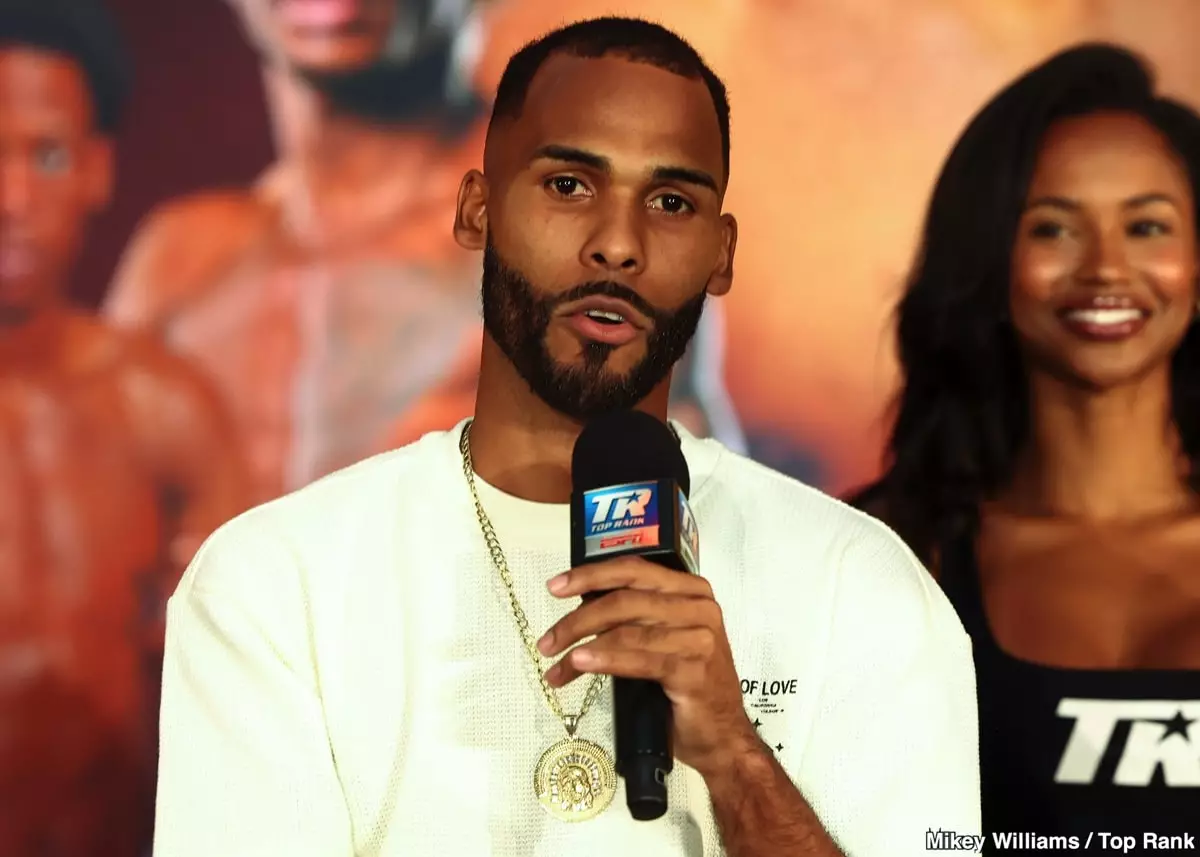Devastating Consequences: The Fallout of Keyshawn Davis’ Weight Controversy
In the world of boxing, where every punch counts and discipline is paramount, missteps can have far-reaching effects. Keyshawn Davis, known for his skill and agility, recently found himself at the center of a weight controversy that echoed throughout the sport. Being over four pounds above the 140-pound limit before his anticipated fight against Edwin De Los Santos wasn’t just a small error—it was a significant breach of professional standards. This lapse not only jeopardized the bout but also impacted both fighters’ careers profoundly, serving as a reminder of the consequences of neglecting discipline.
As someone who loves the thrill and strategy of boxing, I find stories like these both fascinating and cautionary. They’re a stark reminder of how crucial it is for athletes to maintain focus and accountability. In a sport where physical prowess is celebrated, it’s easy to overlook the strict requirements that underpin every match. Watching these events unfold with Davis and De Los Santos was like witnessing a dramatic showdown with more than just a win or loss on the line—it was about integrity and professionalism.
These narratives often leave us pondering about the delicate balance between ambition and responsibility in sports. The fallout from such incidents affects everyone involved, from fighters to promoters, and even fans who eagerly anticipate these matches. As we delve deeper into this story, remember that while ambition drives athletes to greatness, it must be tempered with discipline and foresight.
Key Takeaways
- Weight management is critical in professional boxing to maintain fairness and safety.
- A single miscalculation can have significant career implications for athletes.
- Promoters play a crucial role in safeguarding fighters’ health and career paths.
Casualties of Ambition
The aftermath of Davis’ weigh-in mishap was particularly hard on Edwin De Los Santos, who was eager to compete for the WBO lightweight title. Imagine preparing for what could be the pinnacle of your career, only to have it snatched away due to circumstances beyond your control. His promoter, Sampson Lewkowicz, made the tough decision to call off the fight, prioritizing De Los Santos’ wellbeing over immediate gains. This decision highlighted the harsh truths of boxing: sometimes ambition must take a backseat to ensure safety.
De Los Santos’ willingness to fight despite the odds speaks volumes about his determination and warrior spirit. He even considered continuing for $300,000—a stark contrast to the $50,000 he would have received post-cancellation. Such moments reveal an unsettling aspect of boxing where financial incentives often overshadow long-term health considerations. It’s ironic that a sport designed to showcase peak physical capabilities can quickly turn into a stage for risky decisions when money becomes a primary motivator.

A Divided Path The Promoter’s Dilemma
Sampson Lewkowicz’s role in this saga underscores the complex responsibilities of a promoter. How do you balance protecting your fighter against financial pressures? In this high-stakes environment, Lewkowicz’s decision to prioritize safety over profit required immense courage. His stance reminds us that sometimes wisdom involves making unpopular choices for the right reasons. He knew letting De Los Santos face a heavier opponent would have been reckless—akin to “suicide,” as he put it.
However, Lewkowicz’s protective actions led to an unexpected rupture in his relationship with De Los Santos. This situation raises questions about loyalty and trust within long-term partnerships in boxing. With De Los Santos now seeking new representation, we enter uncertain territory—who will guide him back to prominence? This split not only changes his career path but also serves as a cautionary tale about ambition meeting unpredictability in professional sports.
Seeking Redemption in Uncertainty
The current landscape for De Los Santos is filled with uncertainty. With an impressive record of 16-2 and 14 knockouts before this controversy, he was seen as a promising talent in boxing circles. Yet inactivity since his last match with Shakur Stevenson has left him amid missed opportunities. His determination to find capable management or promotion reflects his commitment despite setbacks—a testament to his resilience.
This situation invites scrutiny into how boxing’s structure affects fighters’ careers. The unpredictable nature of fights and promoter relationships can shape trajectories in unforeseen ways. Navigating these complexities requires strategic thinking; one poor decision—as seen with Davis—can trigger consequences affecting multiple careers. As De Los Santos plans his future steps, he’s faced with choices that could redefine his career or lead to further challenges—a gamble familiar to many in this demanding sport.

Final Thoughts
The saga involving Keyshawn Davis’ weight controversy serves as an important lesson in the world of professional boxing. It reminds us that discipline is non-negotiable when it comes to maintaining fairness and safety in sports. The impact on both Davis and De Los Santos demonstrates how one person’s oversight can ripple through their opponents’ lives as well. For fans like us who cherish these matches for their intensity and skill display, it’s crucial to understand the broader implications behind each bout.
As we follow De Los Santos on his journey post-controversy, we see how resilience plays out amid uncertainty in boxing’s volatile landscape—a beautiful yet brutal arena where dreams are built or broken by split-second decisions. Whether he finds new guidance or carves his path independently remains uncertain but watching his resolve offers hope amidst adversity—a testament that true champions rise even when faced with daunting odds.
boxing
sports controversy
weight management
career impact


Leave a Reply